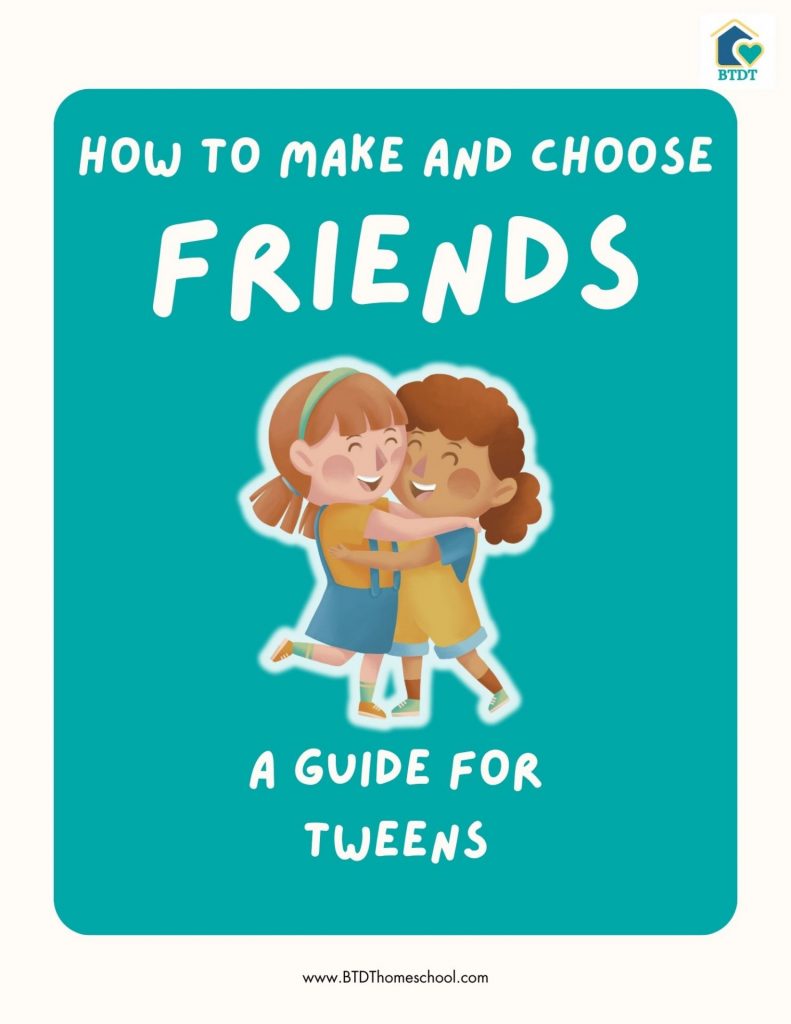How Do Homeschoolers Transition from Elementary to Middle School?
Middle school marks a time of intellectual and personal growth, where kids explore a broader range of subjects and develop critical thinking skills. In today’s episode, we’re talking about transitioning from elementary to middle school and how homeschooling offers a unique opportunity to tailor their learning experiences to their individual needs and interests. We’ll be exploring the advantages, strategies, and resources that will empower you in providing a rich and engaging education while nurturing your child’s love for learning and growing independence.
Episode 054:
TWO WAYS TO LISTEN TO THIS EPISODE:
1. Click PLAY Button Above ^^ to listen here.
2. OR Listen on your favorite podcast platform:

Apple – Spotify – Google Play – Amazon – Others
Scroll down for this week’s FREEBIE:
A Guide for Tweens: How to Make Friends (pdf)
Brand New to Homeschooling?
GETTING START PAGE >>
Kindergarten Page >>
High School Series >>
Show Notes
We spend a lot of time here talking about our beginners and younger homeschoolers and then even more time focused on our high schoolers and getting them ready for college and beyond, but one group often gets left to the wayside in homeschool discussions, and that’s our middle schoolers! They are the Jan of this Brady Bunch!
But meanwhile, homeschooling middle schoolers represents a dynamic phase in a child’s educational journey. Many parents realize at this age that traditional school does not fit their child and choose to withdraw and homeschool their child. If this is you, please take some time to check out our Deschooling page. Deschooling is an essential step to successfully homeschool after withdrawing your child and it will help reengage them and reignite their love for learning. And this step is not just for the kids, it’s an important step for the parents too. You’ll spend time reconnecting with your child and figuring out what kind of education you want to provide so if your kids are in an unhealthy environment, pull them out now and start this process. You don’t have to have it all figured out to begin.
Transitioning from elementary to middle school for homeschoolers is a significant step in a child’s educational journey. It marks a shift from more flexible, parent-led learning approaches to a more structured and diverse curriculum.
How to transition from elementary school to middle school? (4:36)
Here are some key considerations and tips for a smooth transition:
Curriculum Transition
Now is a good time to evaluate your homeschooling curriculum and materials. Middle school typically introduces more or gets more in depth with subjects, such as science, history, and literature. And be sure to consider resources that align with your state’s educational standards. Look up your State’s Homeschool Law.
You’ll want to choose age-appropriate materials. You may find that your student who thrived with read-alouds, may want to do more on their own, or that you need additional hands-on activities. We always caution our younger families not to get too excited about curriculum early and buy ahead several years- what was great in elementary may not suit your family later.
Planning and Scheduling
Create a clear plan and schedule. Establish daily routines and set realistic goals for academic progress. And this doesn’t have to be super rigid, but a little more structure in your schedule is going to help them develop time management skills.
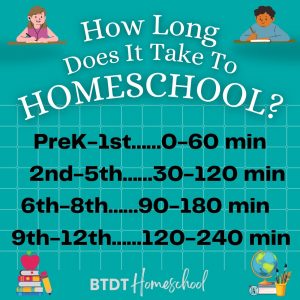
This doesn’t mean suddenly you need a 7-3 schedule. Remember that homeschooling is still way more efficient, and you can get more done in a day, but you may want to just add in some more structure or increase your time. An average time a homeschool middle schooler spends on formal academics is 1-3 hrs. a day. If we have a big project we are working on, we tend to spend a little more towards 3 hrs., but can usually wrap up school in 1.5 hrs.
Increase Independence
Encourage your child to take more ownership of their learning. Provide opportunities for them to plan and organize their assignments and study times. This is the age that I introduce the concept of notetaking, and if my kids are taking an outside class, I start to have them show me their notes and teach them how to review notes after class. Middle school is an ideal time for them to develop greater independence in their studies but gently guide them on forming good habits.

Extracurricular Activities
Explore extracurricular options, such as sports, clubs, and community involvement. These activities can help your child develop social skills, find their interests, and make friends. I had a couple kids that still really liked park days at this age but also a couple that were ready for being dropped at a coffee shop while I took others to the park. Extracurricular Idea Guide.
Field Trips and Real-World Learning
Continue incorporating field trips and hands-on learning experiences. I love this age for field trips! Some of those field trips that your younger kids were too little for are perfect for this age. And these kids benefit from real-world applications of what they’re learning. 100 Homeschool Field Trip Ideas. Also, check out our favorite subscriptions to keep learning engaging.
Technology Integration
Introduce educational technology and digital resources. Middle schoolers may need to become proficient in using computers for research, online classes, and projects. Teach them to use Google docs, PowerPoint. and spreadsheets. A typing program may be handy too and a lot of middle schoolers like to get into gaming and programming, too. Scratch is an awesome free program from MIT.
Individual Learning Styles
Recognize that every child learns differently. Tailor your approach to accommodate their unique learning style and strengths, whether they are visual, auditory, or kinesthetic learners. This goes along with re-evaluating your curriculum that we mentioned above- make sure your choices grow with your child. What is Your Child’s Learning Style?
Communication and Support
Maintain open communication with them. They may have sought a lot of independence, but this is all new and sometimes that can create stress. Address any concerns or anxieties they may have about transitioning to middle school and more independence. Be available to provide guidance and support.
Seeking Help When Needed
If you find certain subjects challenging to teach or if your child has specific educational needs, consider enlisting the help of tutors or specialized educational programs or outsourcing classes. We both have outsourced classes-math and science, writing classes on Outschool.
Socialization
Middle school is a time when children often crave more social interaction. Help them connect with friends with similar interests, values, and beliefs by arranging playdates, group activities, and co-op classes with other homeschoolers to build friendships. This is a time of great transition socially and all of these changes can either be nurtured or hindered by peers. Peer Pressure can even happen to homeschoolers, and it can be either positive or negative. In an effort to best handle social pressure, teach them to be assertive by speaking up and telling friends what they like/don’t like. Most homeschoolers don’t have a problem with this. Keep an open dialogue so they feel safe coming to you about situations that they don’t understand and/or that make them feel uncomfortable.
Our FREE download this week (bottom of this page) is a Guide for your tween to help encourage them to make friends and nurture those relationships. We usually make a resource for the homeschool parent but this one is to print out and hand it to your child to help encourage them. This age can be hard and awkward and lonely. Hopefully this resource will help them to reach out and be proactive in finding connections.
Transitioning Gradually
If your child is apprehensive about the transition, consider a gradual approach, introducing the new middle school curriculum incrementally to ease the adjustment.
This transition from elementary to middle school can be a positive and exciting step in a homeschooler’s education. By being proactive in your approach, providing structure, and maintaining open communication, you can help them navigate this transition with confidence and success.
What academic skills are crucial for middle schoolers? (14:56)
Middle school is a critical stage in a student’s development, where they acquire a wide range of academic, social, and life skills. Below you will find some crucial skills for middle schoolers.
Academic Skills
- Reading Comprehension: The ability to understand and analyze written text critically.
- Math Proficiency: A solid foundation in math concepts, including arithmetic, algebra, and geometry.
- Research Skills: The capacity to conduct research, evaluate sources, and cite information accurately.
- Problem-Solving: The capability to identify and resolve complex problems effectively.

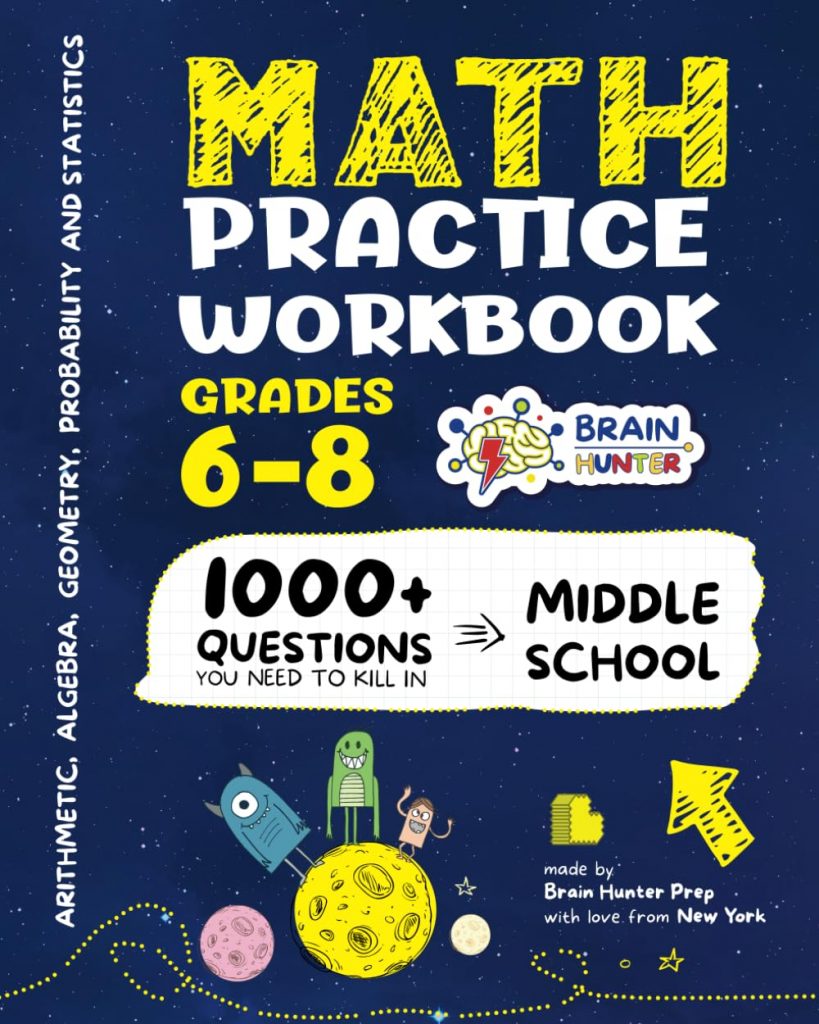

Organization and Time Management
- Time Management: The skill of managing time efficiently to balance academic work, extracurricular activities, and their personal life.
- Organization: Keeping track of assignments, materials, and schedules. Also, check out our Top 15 Planner Strategies for Middle School
Critical Thinking
- The ability to think critically, analyze information, and make informed decisions.
- Logical Reasoning: The capacity to reason logically and draw valid conclusions.
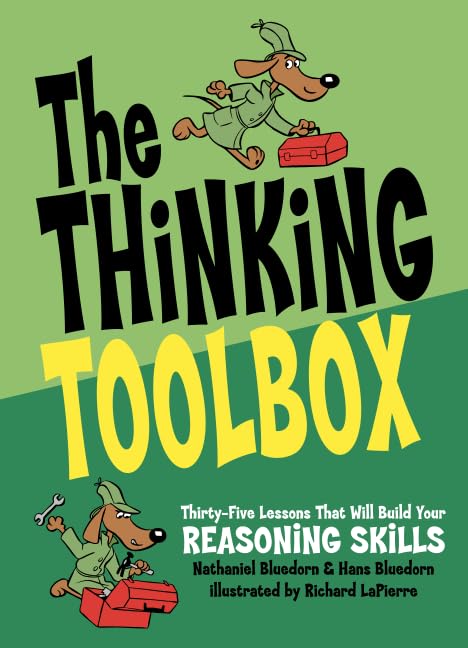
Communication Skills
- Effective Writing: The capability to express thoughts and ideas clearly in written form.
- Oral Communication: The skill of articulating ideas and speaking confidently.
- Active Listening: The ability to listen and comprehend information during discussions and lectures.
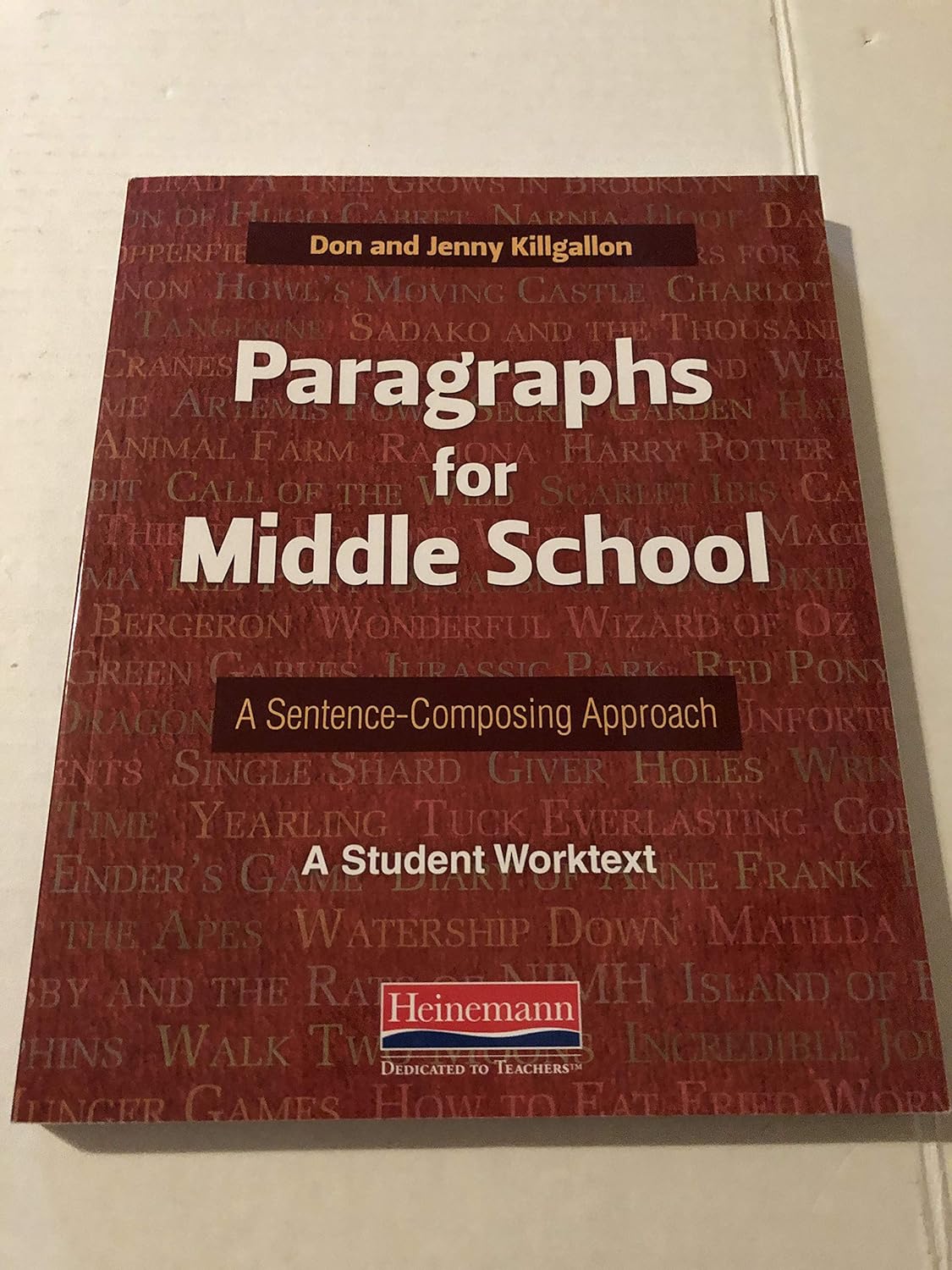
Research and Technology
- Research skills, including online research, source evaluation, and effective use of digital tools.
- Proficiency with technology, including word processing, spreadsheets, and presentation software.
- Information Literacy: The ability to find, evaluate, and use information from various sources critically.
Social and Emotional Skills
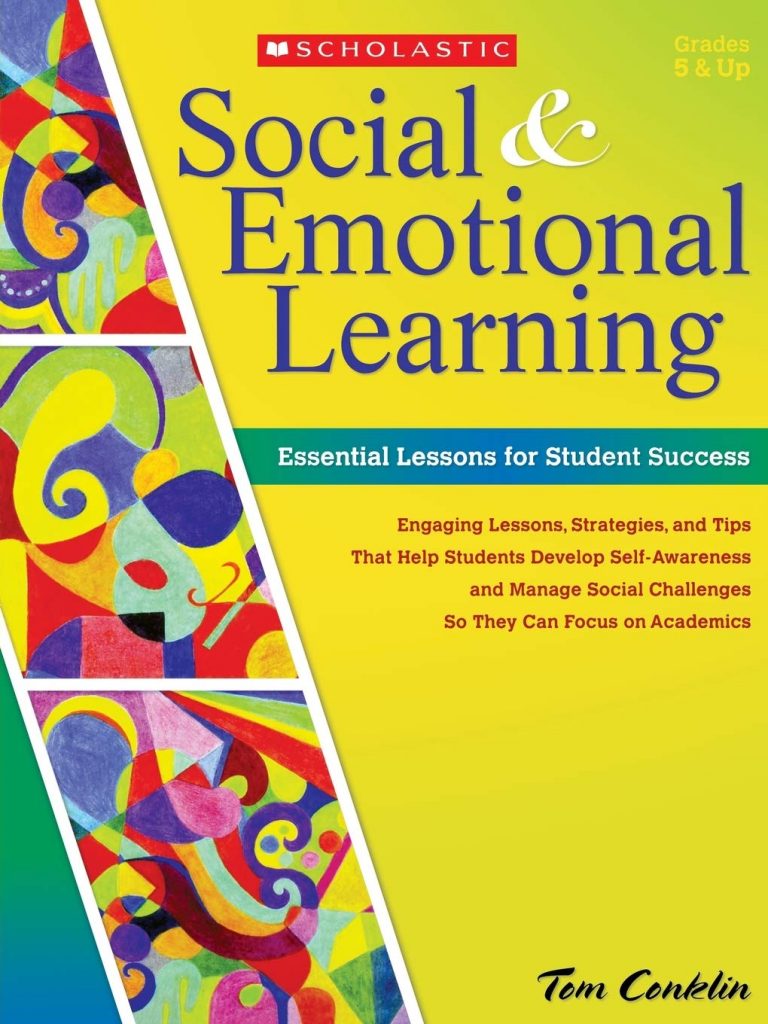
- Empathy: The ability to understand and relate to the feelings of others.
- Conflict Resolution: Skills for resolving disputes and conflicts peacefully.
- Self-Awareness: Developing an understanding of one’s emotions and reactions.
- Resilience: The capacity to bounce back from setbacks and adapt to challenges.
- Cultural and Global Awareness: Developing an understanding of diverse cultures, perspectives, and global issues. We’ve used Universal Yums to do this for years.

Study Skills
- Effective study habits, including notetaking, summarization, and test preparation techniques.
- Time management for studying and completing assignments.
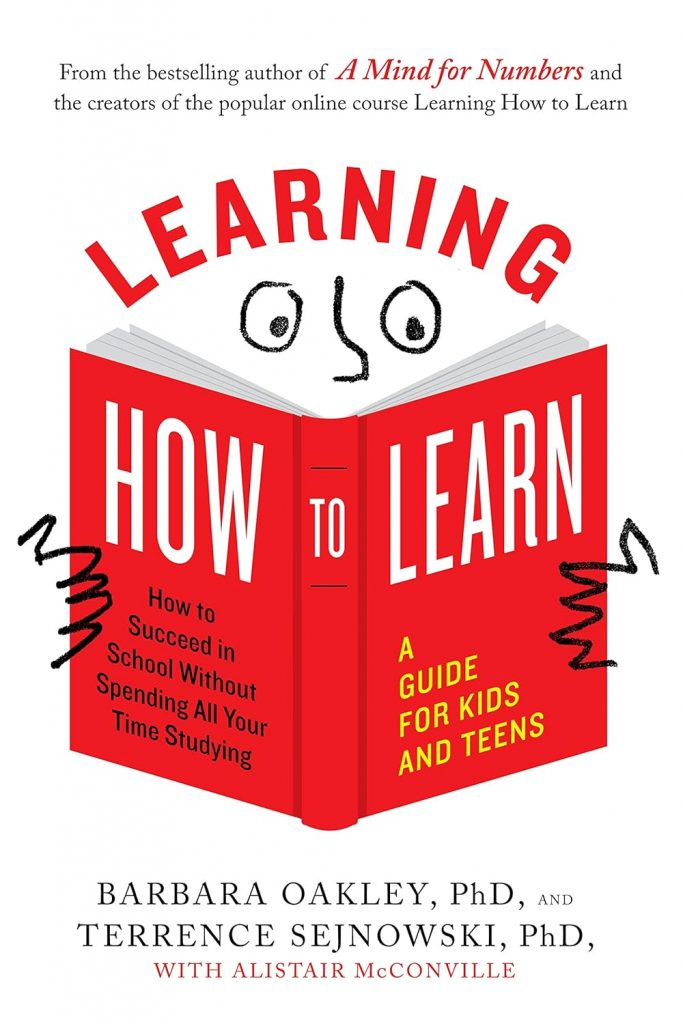
Teamwork and Collaboration
- Working effectively with peers on group projects and in team-based activities. Future City Competition is one of our favorite Middle School group activity – you can win cash prizes!
Health and Wellness
- Basic knowledge of nutrition, physical fitness, and mental health, as well as maintaining a healthy lifestyle.
- Promote a healthy lifestyle by encouraging physical activity, balanced nutrition, and adequate sleep. Teach them about the importance of self-care and well-being. Learn more in Episode 051. Homeschool PE, Health, and Sex Ed. Download Free Fitness Dice!
Teaching and reinforcing these skills during the middle school years can significantly enhance a student’s academic success and overall development, preparing them for the challenges of high school and beyond.
How to care for tweens? (21:43)
Caring for tweens, who are typically children aged 9 to 12, involves a combination of emotional support, guidance, and age-appropriate boundaries. Tread carefully! Some parents really find these years hard while some think it’s a breeze. Remember that our mantra is always “all kids are different!” And you get all that extra time to really know your kids. Maintain open and non-judgmental communication with your tween. Encourage them to express their thoughts, feelings, and concerns. Listen actively and provide a safe space for them to talk.
1. Recognize their growing need for independence and autonomy
Encourage them to take on responsibilities, make decisions, and learn from their experiences. You want to respect their independence. While respecting their autonomy, establish clear rules and expectations. Discuss consequences for breaking rules and consistently enforce them. But also reevaluate them when something is not working. Not everybody would agree with this, but I like to collaborate with my kids when establishing these rules and expectations. And they are more likely to follow them when they’ve had a hand in creating them.
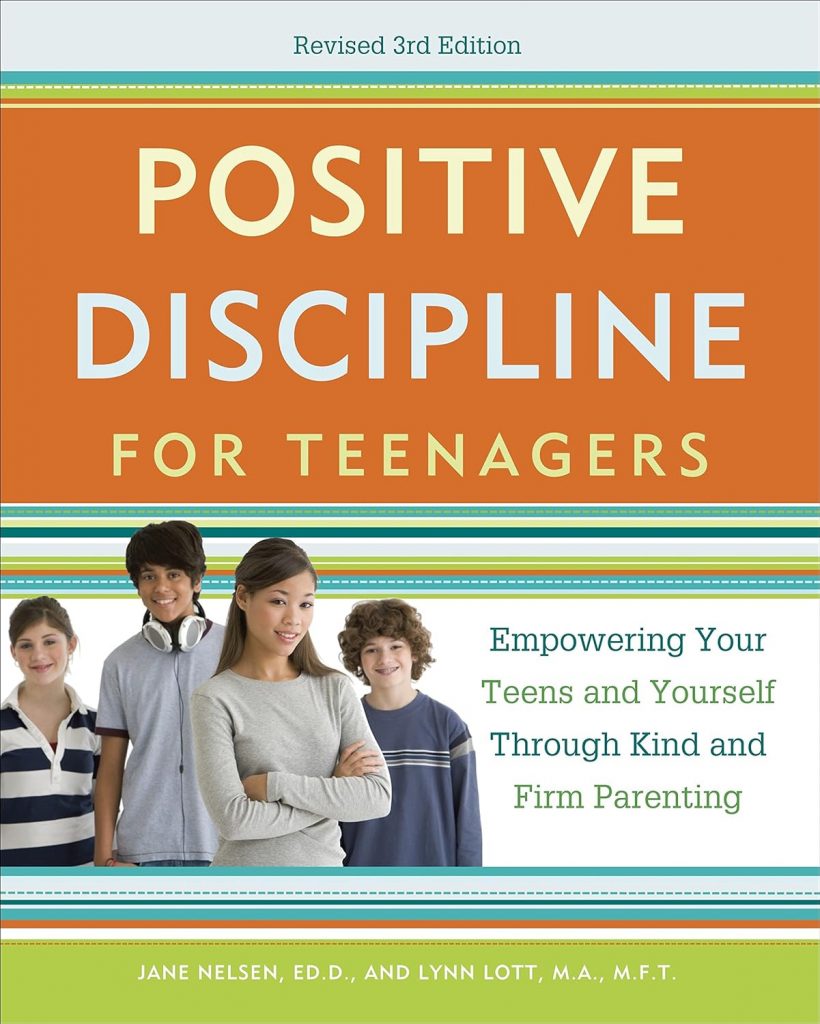
2. Guide them in developing problem-solving skills.
Help them analyze situations, weigh pros and cons, and make informed decisions.
3. Discuss the importance of healthy friendships and how to navigate peer pressure
Offer guidance on resolving conflicts and making good friend choices. Discuss healthy communication with peers, including listening, expressing themselves clearly, and resolving conflicts constructively. Emphasize the values of respect, responsibility, and integrity in their interactions with others. Get your FREE Teen Healthy Relationship E-guide.
4. Pay attention to their emotional well-being
Help them manage stress, anxiety, and emotions by teaching coping strategies and offering emotional support.

5. Support and nurture their interests and hobbies
Provide opportunities for them to explore various activities and find their passions.
6. Foster a love for reading
Provide access to a variety of books. Discuss what they read and encourage them to explore different genres.
7. Educate them about personal safety, both online and offline
Discuss topics like stranger danger, internet safety, and emergency procedures. Set reasonable limits on screen time and ensure that they engage in a balance of activities, both online and offline.
One service that I’ve used for years is called QUSTODIO. When my kids first got devices around middle school age, I really struggled with online safety and protection, and I eventually found this great tool that allows me to monitor apps and websites from my phone. I can even see what websites they visit and block sites from my phone! As they’ve gotten older, I’ve dialed back the monitoring as they have learned online safety but if you’re struggling with this, I would highly recommend this.

Learn more about Qustodio>>
8. Make time for family activities and bonding
This strengthens the family unit and provides a sense of security and belonging. Caring for tweens involves striking a balance between fostering their independence and providing the necessary guidance and support to help them navigate the challenges of adolescence. Adapt your parenting approach to meet the unique needs and personality of your tween, recognizing that each child is different and may require different types of care and support.
This Week’s Freebie:
